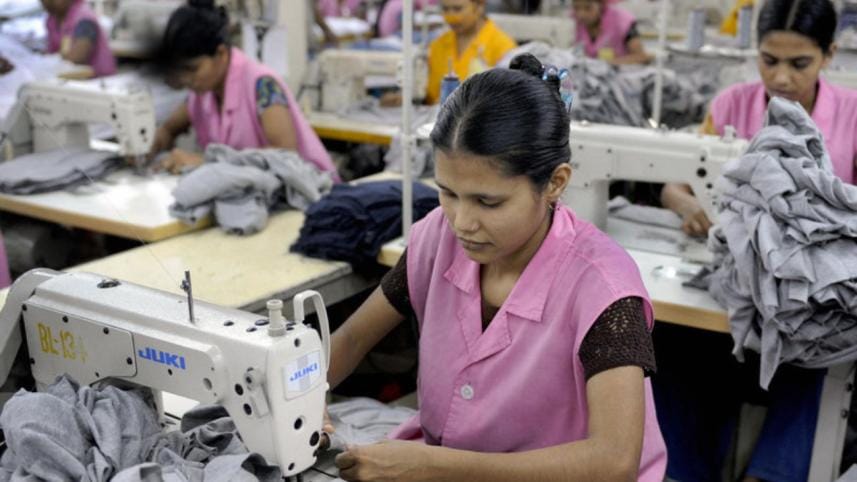Amended labour law not worker-friendly

A group of labour leaders of Bangladesh today complained to the visiting delegation of the European Union that the amended labour law is not worker-friendly as many anti-labour provisions have been incorporated.
They also said the Bangladesh Labour (Amendment) Bill 2023, which was passed in parliament on November 2, was not finalised following proper consultation with them.
For instance, the leaders had been demanding the withdrawal of the threshold on consent required to form trade unions at factories, with a view to easing the process of registration. The amended labour law has kept the provision.
As a result, if the number of workers in a factory is less than 3,000, the consent of 20 percent of labourers will be needed to form a trade union. It will go up to 15 percent in factories that employ more than 3,000 workers.
The union leaders also complained that the service benefit is not well-protected in the amended law. If a worker can't continue in his or her job for one year at a stretch, there is a possibility of losing the benefit.
The provision of maternity leaves for female workers is not well-specified, so factory management might keep following the old practice and the workers might be deprived again, said Nazma Akter, president of the Sammilito Garment Sramik Federation, a workers' platform, at the meeting with the EU delegation at the EU office in Dhaka.
"Before the finalisation of the amendment, the union leaders were not consulted."
Md Towhidur Rahman, president of the Bangladesh Apparel Workers Federation, said it would be difficult to obtain the EU's Generalised Scheme of Preferences Plus status as the amended law is not worker-friendly.
The two leaders shared their observations while speaking to The Daily Star after the meeting.
Bangladesh hopes to secure the GSP Plus status from 2029 after the expiry of the LDC trade benefit in order to retain the duty benefit in the world's largest trade bloc.
In order to do so, the country will have to implement 32 international conventions in four areas: human rights, labour rights, environmental protection, and good governance.
The labour law has been amended as part of the government's efforts to secure the GSP Plus status.
The delegation is led by EU External Action Service's Deputy Managing Director for Asia Pacific Paola Pampaloni.
The visiting EU delegation will hold a meeting with the secretaries of commerce, labour and foreign ministries at a state guest house in Dhaka today.
In the meeting, the delegation will mainly want to know about Bangladesh's progress in the labour law reforms and the implementation of the National Action Plan of the government, said Senior Commerce Secretary Tapan Kanti Ghosh.
The plan, adopted in 2021, is a document where the government has committed to bringing changes to the labour law.
The Plan is closely linked to the roadmap submitted by the government to the International Labour Organisation (ILO) following an Article 26 complaint, according to the ILO.
The roadmap aims to improve the country's observance of labour rights, including freedom of association and the right to collective bargaining.
The ILO has been supporting the government to implement the two documents and reform processes, which form part of a body of work that has been ongoing since the collapse of Rana Plaza a decade ago.




 For all latest news, follow The Daily Star's Google News channel.
For all latest news, follow The Daily Star's Google News channel.
Comments